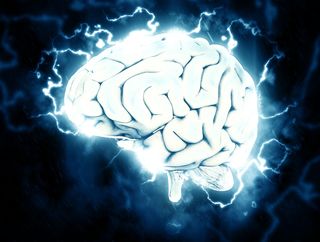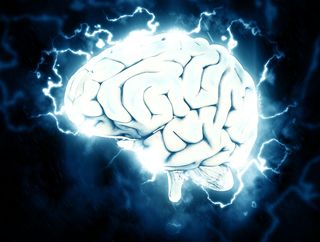Learn about brain health and nootropics to boost brain function
5 Easy Ways to Boost Your Brain Health


Brain supplements are big business. In 2015, the supplement market specifically targeted toward boosting brain health was worth an estimated 2.3 billion dollars. By 2024, that number is expected to increase by 500 percent, reaching an estimated 11.6 billion dollars.
More and more, people are turning to supplements to enhance their memory, alleviate depression and anxiety, increase their attention and focus, support longevity, and prevent dementia. Among the most popular of these supplements are carnitine, ginkgo, ginseng, fish oil, turmeric, and most recent to enter the market, CBD oil.
But do any of these supplements actually work?
Unfortunately, supplements are loosely regulated and good-quality research studies on their effectiveness are hard to come by. But the studies that have been conducted continue to find no evidence in support of their effectiveness. For example, a study published in The Lancet Neurology examined ginkgo biloba use among 2,854 older adults with memory complaints over the course of five years. In the end, the group who took ginkgo twice a day had the same number of Alzheimer’s cases as the group who took a placebo.
So rather than wasting your hard-earned money on ineffective supplements, try these five tips for boosting your brain health. Not only are they backed by science, but they’re also easy to do and cost way less than supplements (many are even free).
1. Think Fork, Not Pill
Supplements in pill form may be ineffective, but there are lots of benefits to adding them to your diet the natural way—through food. Research shows that better brain health is associated with a diet rich in green leafy vegetables, walnuts, berries, and fatty fish.
For instance, a 2012 study on thousands of adults found that those who took fish oil pills to get their omega-3s performed just as well on a short-term memory test and had just as many dementia diagnoses as those who took a placebo. But another study found that people who got their omegas the natural way—by eating a diet rich in fatty fish like salmon—did have a lower risk of dementia.
Certain vitamins and minerals do seem to be effective in boosting brain health, but you have to take them via a fork, not a pill (a great cookbook that includes recipes with brain-boosting ingredients is Fat for Fuel)
2. Get Your Sweat On
We all know exercise is great for your body, but it’s just as good for your brain.
A study published in the Journal of Alzheimer's Disease found that a lack of exercise in older adults put their risk of developing dementia on par with adults who were genetically predisposed to the disease. So even if you are not genetically predisposed for dementia, you could be putting yourself at risk if you are leading a sedentary lifestyle.
But protecting against dementia isn’t the only benefit of exercise. Regular heart-increasing activity helps the brain work more efficiently, no matter your age or condition. And this doesn’t mean you have to hit the gym hard to boost your brain health. Less strenuous activities, like walking, yoga, tai chi, are also effective as long as they get your heart rate up. Skip counting steps and instead focus on getting a minimum of 150 minutes per week of elevated heart rate activity (this is where a fitness tracker like Fitbit comes in handy).
3. Train Your Brain
Your brain is like a muscle if you don’t use it, it’s strength will start to fade. Regularly exercising your brain—through the use of brain teasers, crossword puzzles, or learning a new language—is a great way to keep your brain in shape.
Now, not all studies support the effectiveness of brain training, but there are enough out there that do, suggesting this is a viable option (it also suggests we need a lot more studies conducted on this topic). For example, a 2018 study had healthy adults perform a training exercise that focused on attention, processing speed, visual memory, and executive functioning. One group performed this training exercise for 15 minutes per day, seven days a week, for three weeks. The other group skipped the training altogether. In the end, the brain-training group demonstrated significantly better attention and response times.
Instead of spending your free time mindlessly binging on Netflix, consider doing tasks that give your brain a workout.
4. Get a Pet
There are lots of studies showing how having a pet provides mental health benefits.
For example, a 2016 meta-analysis analyzed 17 academic studies and found that people with long-term mental health problems significantly benefited from owning a pet. As the researchers put it, “Pets provided a unique form of validation through unconditional support, which they were often not receiving from other family or social relationships.”
And another study conducted on children found that for children with a dog, 12 percent tested positive for anxiety, compared to 21 percent of children without a dog.
So the next time you need to boost your mood, spend some time with a furry friend.
5. Grab Zzzz's
Sleep is arguably the most important and most underappreciated factor when it comes to brain health. We live in an age where CEOs, TV show hosts, and presidents brag about being able to function on just a few hours of sleep, but the data suggests that skimping on sleep is akin to starving your brain.
Study after study shows that getting seven to eight hours of sleep is necessary for all aspects of proper brain functioning, including memory, attention, learning, and creativity. You would never starve yourself of food before going to the gym. Why would you starve your brain by skimping on sleep?
Getting more sleep is easy, free, and essential for mental as well as physical health. If you take away one piece of advice from this post, it’s that you need to make sleep a priority and try to get seven to eight hours each night. For an excellent read on why sleep is important and how to get more of it, check out Matthew Walker’s book Why We Sleep.
And what if you absolutely can’t squeeze in more zzz’s? Try taking a nap. One study found that an hour-long midday nap boosted cognitive performance better than 200 mg of caffeine (equal to two espressos).
Click here to view full article